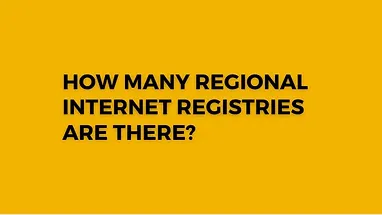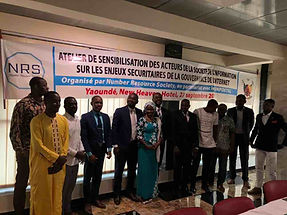There are five Regional Internet Registries (RIRs) around the world.
Each of these five RIRs are responsible for different regions:
- RIPE NCC for Europe and the Middle East
- APNIC for Asia/Pacific
- ARIN for North America
- LACNIC for Latin America and the Caribbean
- AfriNIC for Africa
What are roles of RIRs?
RIRs are responsible for IP address allocation and registration. They maintain databases of IP address assignments but not domain names. Local registries manage domain names and often allocate IP addresses.
Before we go further, let’s take a quick look into the organization that handles Internet resources globally: the Internet Corporation for Assigned Names and Numbers (ICANN).
ICANN handles IP address allocation, protocol parameters, domain name system, and root servers after taking over from lANA and InterNIC.
IP addresses are strictly controlled, and ICANN allocates them hierarchically to Regional Internet Registries (RIRs) that further assign them to Local Internet Registries and ISPs.
RIRs play a vital role in allocating and registering Internet number resources within their regions, based on community-developed policies. They ensure unique assignments and distribution according to justified need.
Each RIR has different membership structures:
- AFRINIC: Resource and Associate Members
- APNIC: Members, Non-Members, and Associate Members
- ARIN: Service Members and Legacy Customers
- LACNIC: Active and Adhering Members
- RIPE NCC: Local Internet Registries and End Users with or without RIPE NCC membership.
How IANA and RIRs Work Together
One of its main functions of IANA is to delegate various Internet resources to Regional Internet Registries.
In turn, the RIRs follow regional policies and guidelines to distribute these resources to their members. These members can include Internet service providers, as well as end-user organizations.
The Number Resource Organization
To coordinate better, the RIRs have come together to form the Number Resource Organization (NRO). It was formed on October 24, 2003, with the signing of a memorandum of understanding (MoU). There were only four existing RIRs at the time. AFRINIC was formed just a year after.
The agreement paved the way for the NRO to engage in various activities, such as joint technical projects, liaison efforts, and policy coordination.
The Objective of the NRO are as follows:
Managed Unused/Unassigned Internet Resources
The NRO coordinates RIRs to better manage Internet Protocol (IP) addresses that have not yet been assigned or allocated to specific entities. This management of resources is even more important as the Internet continues to grow and expand.
Promote the Bottom-Up Policy Development Process
The NRO supports the idea that decisions regarding Internet policies should be made by the community that uses and relies on the Internet. It encourages a bottom-up approach to policy development, where the needs and input of the Internet community is placed above all.
Connect RIRs with the Internet Community
The NRO acts as a bridge between the Internet community and the RIRs. It facilitates communication and input from various stakeholders. Their goal is to ensure that the interests and concerns of the global Internet community are taken into account.
Additionally, the NRO has entered into an agreement with the Internet Corporation for Assigned Names and Numbers (ICANN) to establish the Address Supporting Organization (ASO). The ASO facilitates global IP addressing policies within the ICANN framework. The aim is to contribute to the stable and efficient operation of the Internet’s addressing system.
Closing Thoughts
While RIRs were formed with good intent, some Internet policies may not meet our current needs. For example, some rules make it difficult for new businesses and startups to get the IP addresses they need.
Moreover, some registries have transfer policies that make it difficult or expensive to transfer domain names. This can be a problem for businesses that need to change their domain names for branding or other reasons.
There are a number of things that can be done to address the challenges posed by internet registries’ policies. One is to increase transparency and accountability.
It is important to continue to innovate. New technologies are emerging all the time– internet registries need to be able to adapt to these changes.
The Number Resource Society (NRS) is a non-profit that fights for the rights of businesses to continue to grow and thrive.
Get in touch with NRS to know how you can contribute to a free, open, and progressive Internet.




